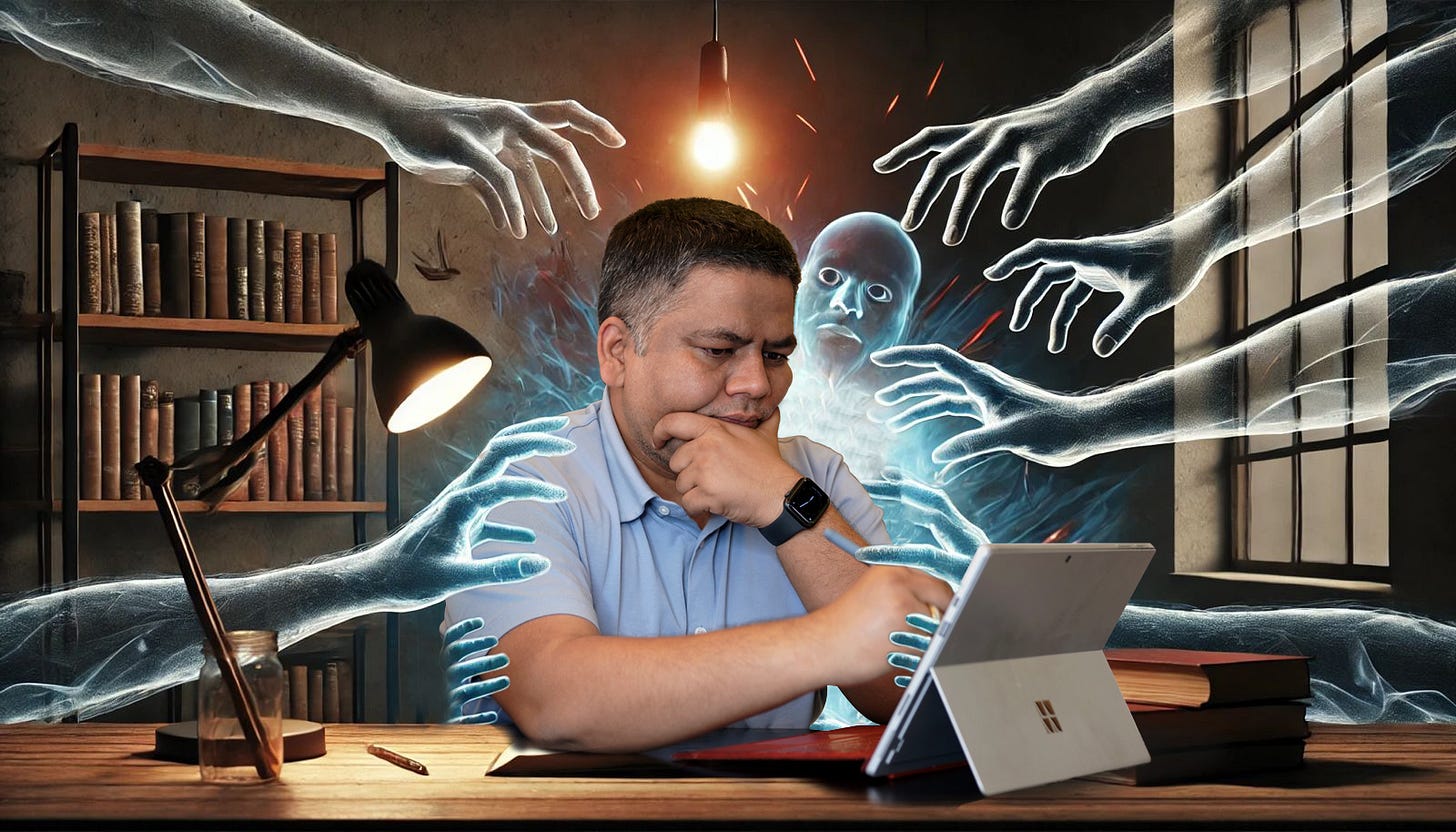Breaking Free from Guilt Traps
A Psychological Insight to Strengthen Your Personal and Professional Boundaries
The Hidden Manipulation of Guilt: How to Safeguard Yourself
Guilt is a powerful emotion, often emerging when we feel we've failed to meet moral, ethical, or personal standards. While guilt can play an essential role in self-regulation and growth, it can also be manipulated by others to control or influence our behavior. Understanding the psychology behind guilt can help you recognize and protect yourself from such manipulation, both in your personal and professional life.
Understanding Guilt and Its Origins
Guilt typically arises from two sources:
Internal Triggers: These come from within, driven by personal beliefs, morals, or values. When guilt stems from your own actions, it is often a signal to reflect on and address the root cause.
External Triggers: In some cases, guilt is imposed by others. People, either knowingly or unknowingly, may create situations that induce guilt to manipulate or control your decisions and actions. Recognizing these external triggers is crucial to avoiding manipulation.
Why Do People Manipulate Guilt?
There are several reasons why someone may impose guilt on others:
Control or Power: Guilt can be used to manipulate your behavior, pushing you to act in ways that align with someone else’s desires. By making you feel guilty, they gain influence over your actions.
Emotional Manipulation: Guilt is often wielded as a tool to shift responsibility. Statements like, "If you cared about me, you’d do this," create a sense of obligation, leveraging guilt to fulfill their emotional needs.
Deflecting Responsibility: People may shift blame or project guilt onto you to avoid taking responsibility for their own actions, thereby protecting their self-image.
Gaining Sympathy or Attention: Some individuals use guilt to garner sympathy or attention, portraying themselves as victims and inducing guilt in others to receive validation or support.
How to Safeguard Yourself from Guilt Manipulation
Recognizing and protecting yourself from guilt manipulation requires both emotional awareness and assertiveness. Here are key strategies:
Develop Emotional Awareness:
Become mindful of your emotions and ask yourself, "Why am I feeling guilty?" Is the guilt justified, or is someone else imposing it on you? Understanding the source of guilt allows you to differentiate between genuine self-reflection and external manipulation.Set Clear Boundaries:
Personal boundaries protect you from being controlled or manipulated by others. When faced with guilt-inducing statements, assert your boundaries by saying, "I understand your feelings, but this isn’t my responsibility." Defining what is and isn’t your responsibility is key to maintaining your emotional autonomy.Reflect Objectively on the Situation:
Take a step back and assess the situation with a neutral mindset. Is the guilt you're feeling proportionate to the circumstances? Or is it exaggerated by someone else's influence? Often, guilt imposed by others is disproportionate and intended to manipulate your response.Practice Self-Compassion:
No one is perfect, and it’s important to acknowledge that everyone makes mistakes. By practicing self-compassion, you weaken the power guilt has over you, making it harder for others to manipulate your emotions.Communicate Assertively:
If you suspect someone is trying to manipulate you through guilt, address the situation calmly and assertively. Use "I" statements to express your feelings: "I feel like I’m being made to feel guilty for something beyond my control." This allows you to communicate without escalating tension, while maintaining control over your emotions.Resist Giving In to Pressure:
Often, guilt is used to pressure you into compliance. Recognize this and resist making decisions solely to relieve your guilt. Instead, base your choices on your values and priorities, not on external manipulation.
Conclusion
Guilt, while a natural and often constructive emotion, can also be weaponized by others as a means of control and manipulation. By understanding the psychological basis of guilt and employing strategies to recognize and respond to external triggers, you can protect your emotional well-being and maintain control over your actions. Developing emotional awareness, setting boundaries, and practicing self-compassion are essential tools to safeguard yourself from manipulation, allowing you to navigate both personal and professional situations with confidence.





Guilt can cause individuals to withdraw emotionally, leading to distance and strained relationships within the family. The person feeling guilty might avoid meaningful interactions, fearing judgment or rejection.
Accept that you’re feeling guilty instead of suppressing it. Recognizing your emotions is the first step towards dealing with them. If one doesn't realise there is a problem how can one deal with it?